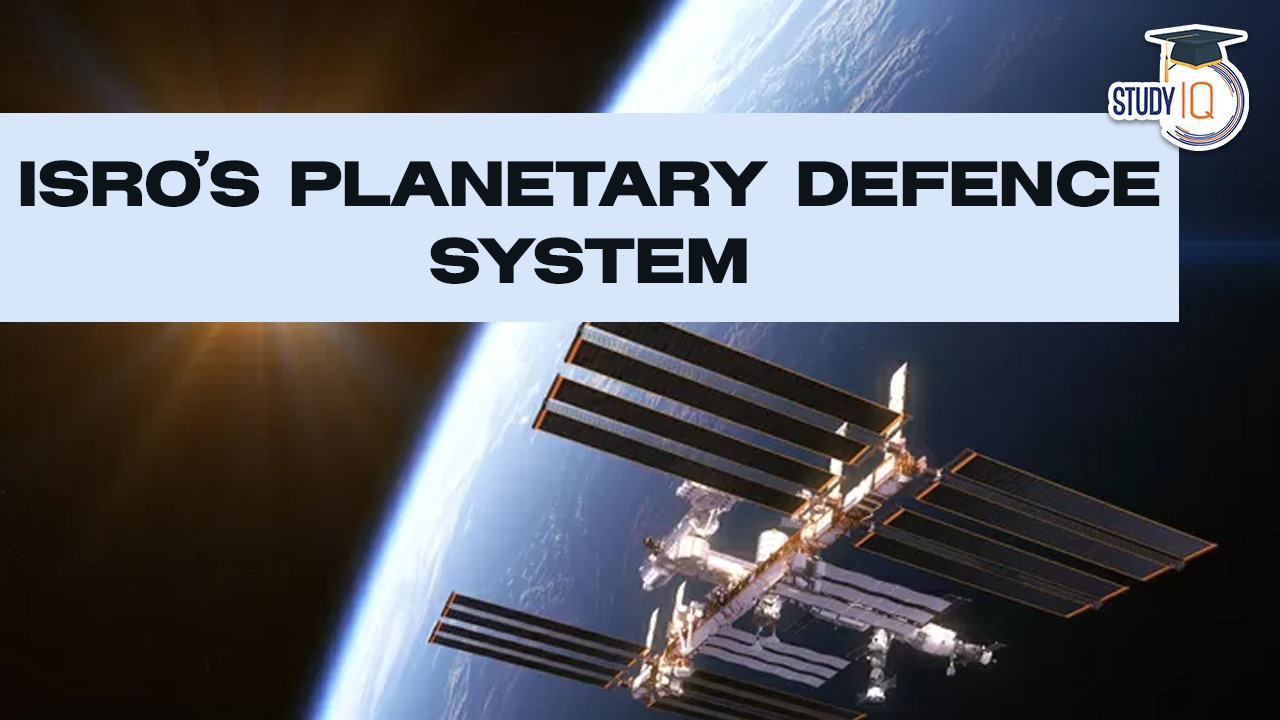Table of Contents
Context: The Indian Space Research Organisation (ISRO) has shown interest in exploring the asteroid Apophis during its close approach to Earth at a distance of 32,000 km in 2029.
About Apophis
- Discovery and Initial Threat: Apophis was discovered in 2004 and initially posed a 2.7% chance of colliding with Earth, the highest probability for a large asteroid in recent history.
- Size and Impact Potential: At approximately 450 metres wide, an impact by Apophis could cause significant damage, drawing comparisons to the event that caused the dinosaur extinction.
- Collision Risks Ruled Out: Subsequent observations ruled out any collision risks for the years 2029, 2036, or 2068.
- Scientific Opportunity: Despite no collision risk, the close approach of Apophis in 2029 remains a crucial opportunity for scientific study and preparation for potential future threats.
Threats Posed by Asteroids
- Constant Threat: While Apophis poses no imminent threat, Earth constantly faces potential impacts from other asteroids.
- Daily Atmospheric Entry: Thousands of asteroids enter the Earth’s atmosphere daily, most burning up due to friction.
- Significant Incidents: Occasionally, larger asteroids cause damage, such as the 2013 Chelyabinsk event in Russia, where a 20-metre-wide asteroid exploded in the atmosphere, injuring nearly 1,500 people.
- Need for Planetary Defense: This incident highlighted the need for a planetary defence program to detect and neutralise such threats before they cause harm.
Planetary Defense and Scientific Endeavours
- NASA’s 2022 Mission: NASA demonstrated the feasibility of altering an asteroid’s trajectory by crashing a spacecraft into it, with a successful test on asteroid Dimorphous.
- Potential for Defense Program: This successful test underscored the potential for a planetary defence program.
- Upcoming Missions for Apophis: With Apophis’s upcoming approach, numerous space agencies are planning missions to study the asteroid closely.
- NASA’s Preparation: NASA has redirected a spacecraft that previously studied asteroid Bennu to track Apophis, aiming to collect data and analyse its surface during its 2029 flyby.
ISRO’s Growing Capabilities and Global Contributions
- Interest in Apophis Exploration: ISRO’s intention to join the Apophis exploration effort reflects its growing confidence and capability in addressing new challenges.
- Proactive Role: Participating in such missions highlights ISRO’s proactive role in global space objectives and reaffirms its evolution into a well-rounded space agency.
- Enhancing Technical Expertise: This endeavour not only enhances ISRO’s technical expertise but also contributes to the broader scientific understanding of asteroids and planetary defence strategies.
- Alignment with International Efforts: By aligning with international efforts, ISRO can further solidify its position as a leading space agency and ensure its readiness to protect Earth from potential asteroid threats in the future.


 Why India Needs Its Own Economic Model?
Why India Needs Its Own Economic Model?
 Challenges in India’s Airline Sector: ...
Challenges in India’s Airline Sector: ...
 Forest Conservation Act, 1980: Objective...
Forest Conservation Act, 1980: Objective...

























